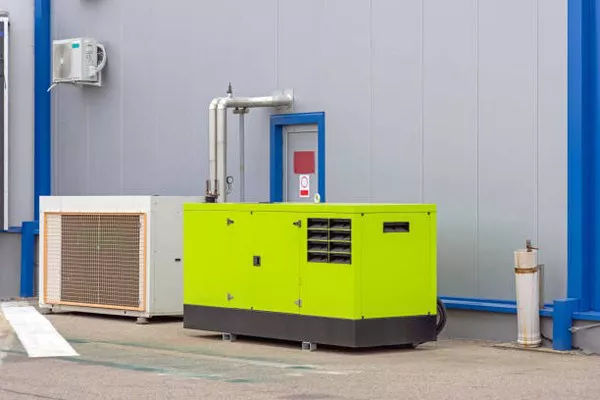Generators are invaluable tools during power outages, emergencies, and outdoor events. They provide a reliable source of electricity when the grid fails, ensuring that essential appliances and devices continue to function. However, a crucial concern for generator owners is understanding how long their generator will run on a tank of gas. This article explores the various factors that influence generator runtime, provides calculations to estimate runtime, and offers tips to optimize fuel efficiency.
Understanding Generator Fuel Consumption
Before we delve into the specifics, it’s essential to understand how generators consume fuel. Generator fuel consumption is typically measured in gallons per hour (GPH) or liters per hour (LPH) and depends on the generator’s size, load, and efficiency. Larger generators with higher loads tend to consume more fuel than smaller ones operating at partial loads.
Key Factors Influencing Generator Runtime
Generator Size and Capacity: The generator’s power output capacity is a fundamental factor determining how long it will run on a tank of gas. Generators are available in various sizes, measured in watts (W) or kilowatts (kW). The larger the generator’s capacity, the more fuel it generally requires to generate electricity.
Load: The load on a generator refers to the amount of electrical power it is supplying at any given time. Generators can operate at partial or full loads. Running a generator at full load consumes more fuel and results in shorter runtime, while running it at partial load is more fuel-efficient and extends runtime.
Fuel Tank Size: The size of the generator’s fuel tank directly affects how long it can run without refueling. Generators designed for longer runtime typically have larger fuel tanks, allowing them to operate for an extended period.
Fuel Efficiency: The fuel efficiency of a generator can vary widely based on its make and model. Modern generators often incorporate advanced technologies to improve fuel efficiency. Inverter generators, for instance, are known for their fuel-efficient operation.
Fuel Type: The type of fuel used also plays a significant role in generator runtime. Generators can run on various fuels, including gasoline, diesel, propane, and natural gas. Each fuel type has its own energy content, affecting how long the generator can run on a tank.
Calculating Generator Runtime
To estimate how long your generator will run on a tank of gas, you can use the following formula:
Generator Runtime (in hours) = Fuel Tank Size (in gallons) / Fuel Consumption Rate (in GPH)
Here’s a step-by-step guide on how to calculate runtime:
Step 1: Determine the Fuel Tank Size
Check your generator’s specifications or user manual to find the fuel tank size. It is usually expressed in gallons (for gasoline or diesel generators) or pounds (for propane generators).
Step 2: Find the Fuel Consumption Rate
Refer to your generator’s documentation to find the fuel consumption rate, which is usually given in GPH or LPH. This rate will vary depending on the generator’s load and can often be found in a table or chart provided by the manufacturer.
Step 3: Perform the Calculation
Divide the fuel tank size (in gallons) by the fuel consumption rate (in GPH) to determine the estimated runtime in hours.
Example Calculation:
Let’s say you have a 5,000-watt generator with a 5-gallon fuel tank and a fuel consumption rate of 0.5 GPH:
Generator Runtime = 5 gallons / 0.5 GPH = 10 hours
In this example, your generator would run for approximately 10 hours on a full tank of gas at the given load.
Tips for Optimizing Generator Fuel Efficiency
Load Management: Whenever possible, operate your generator at a partial load rather than a full load. Unnecessary power consumption can deplete your fuel supply more quickly.
Regular Maintenance: Keep your generator well-maintained. Clean or replace air filters, spark plugs, and fuel filters as recommended by the manufacturer. A well-maintained generator operates more efficiently.
Use High-Quality Fuel: Use high-quality fuel with the appropriate octane or cetane rating for your generator. Low-quality fuel can lead to poor combustion and decreased efficiency.
Invest in an Inverter Generator: Inverter generators are known for their fuel efficiency. They adjust their engine speed to match the load, resulting in lower fuel consumption.
Proper Sizing: Choose a generator that meets your power needs without being excessively large. An oversized generator may burn more fuel than necessary.
Fuel Stabilizer: If you anticipate long periods between generator use, consider using a fuel stabilizer to prevent fuel degradation, which can affect efficiency.
Conclusion
The runtime of a generator on a tank of gas depends on several factors, including its size, load, fuel efficiency, fuel tank size, and fuel type. By understanding these factors and performing the appropriate calculations, you can estimate how long your generator will run on a full tank. Additionally, implementing fuel-saving practices and proper maintenance can help optimize fuel efficiency and ensure that your generator serves its purpose effectively during power outages and emergencies.

